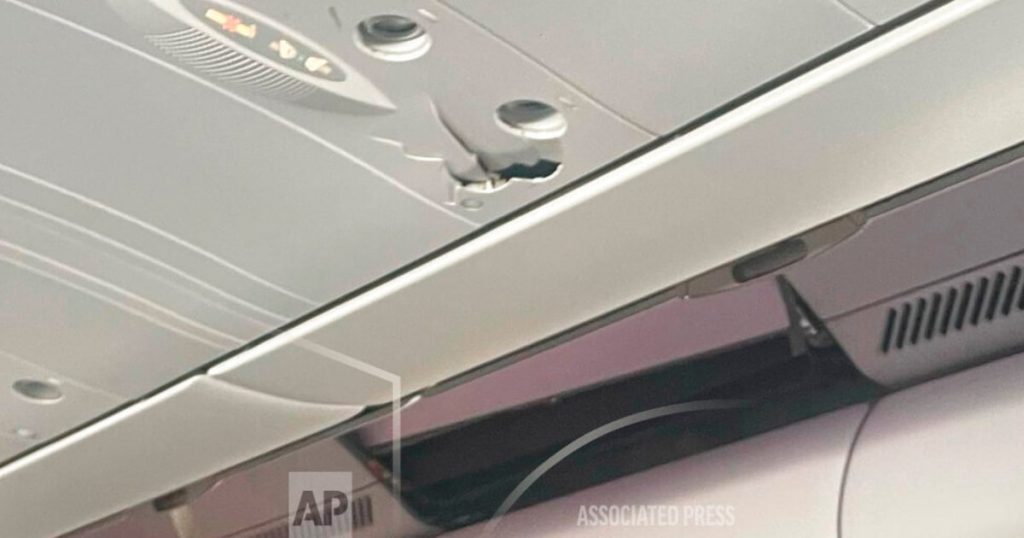
Twenty people who were on a Hawaiian Airlines flight near Honolulu suffered significant injuries when the jetliner bucked violently in a patch of turbulent air Sunday, officials said.
Flight 35 from Phoenix, an Airbus A330, was roughly 30 minutes from its destination, Daniel K. Inouye International Airport, when it struck the unstable and unexpected patch about 10:35 a.m., the Federal Aviation Administration said in a statement.
The aircraft was at capacity, with 278 passengers, eight flight attendants and two pilots on board, when the incident shook it enough to damage interior panels and cause head injuries for multiple people, Hawaiian Airlines officials said.
Flight 35 was at a cruising altitude of 36,000 feet when it hit the patch, Hawaiian Airlines Chief Operating Officer Jon Snook said at a news conference Sunday.
Fasten seat belt lights were on at the time, but at least some of the injured were not restrained properly, airlines officials said.
The Airbus was near the point where its descent toward Honolulu would normally take place, so pilots continued its approach path as they requested an emergency landing to hasten urgent treatment for the injured, Snook said.
After it landed safely, the Airbus was the subject of a precautionary mass casualty response by paramedics, which included multiple emergency vehicles on the tarmac, Dr. James Ireland, the director of the Honolulu Emergency Services Department, said at the news conference.
Exact genders and ages of the injured were not available; the Emergency Services Department described one patient as a 14-month-old baby. Another passenger was said to have been knocked or otherwise made unconscious by the severe turbulence, Ireland said.
Eleven of the injured were hospitalized in serious condition, emergency services spokesperson Shayne Enright said in an earlier statement. Nine were stabilized at hospitals. Paramedics treated 16 others at the scene for minor issues, including nausea, Enright said.
The hospitalized patients suffered head injuries, cuts, bruises and nausea, officials said. Three of the injured were flight attendants, they said.
“There was no warning of this particular patch of air,” Snook said. “You just don’t know when it’s coming.”
Turbulence is common enough that aircraft like the Airbus are designed and built to endure it, he said, but it is still hard to predict exactly when and where it will be encountered.
Such a level of turbulence has not affected a Hawaiian Airlines flight since the century began, Snook said.
Pilots often report troublesome patches of turbulent air to fliers on their aircraft as a courtesy. They are usually avoided by diving below or climbing above the patches, Snook said.
Ireland said, “It’s fortunate there were not any deaths or critical injuries.”
The FAA said it is investigating.
The National Weather Service had warned Saturday that a cold front clashing with the warm, tropical air native to Hawaii could produce thunderstorms, heavy rain, powerful winds and even some hail over the weekend.
The turbulence incident came on the eve of the year-end holiday travel rush, when nearly 7.2 million people are expected to embark on out-of-town visits and vacations by air as part of a post-pandemic rebound that nearly matches 2019’s year-end air traveler traffic, AAA and the transportation analytics firm Inrix said in a statement.
Erick Mendoza, Jay Blackman, Courtney Brogle and Suzanne Ciechalski contributed.
 Latest Breaking News Online News Portal
Latest Breaking News Online News Portal






